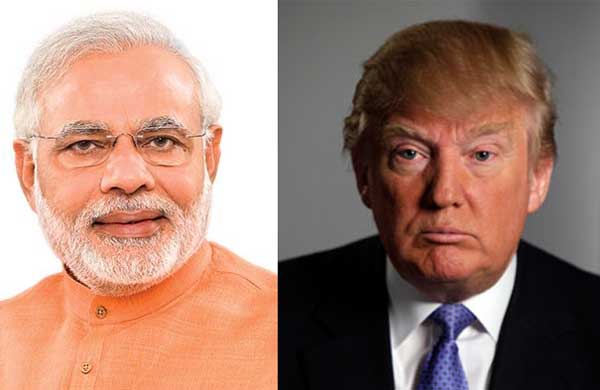When Americans go to the polls on November 6, Indian Prime Minister Narendra Modi – like many world leaders – would be keenly watching the turnout, as a lot is riding on the mid-term Congressional election. The vote this year has stood out for its possible consequences largely because President Donald Trump’s economic and foreign policies — whether it’s trade tariffs, immigration laws or sanctions against Iran — that have serious implications for some of India’s national interests.
Trump’s populist election campaign has queered the pitch for the India-US negotiations. Despite favourable noise in recent weeks, including about a possible trade deal, the talks have not gone far. The Trade Policy Forum which was supposed to meet in October, didn’t meet, and it is not known when it would. The US-India commercial dialogue has also said to have been postponed till next year.
And a day before Modi announced a financial support for Micro, Small and Medium Enterprises, the Trump administration, which has earlier slapped duties on steel and aluminium products, revoked duty-free concessions on import of at least 50 Indian products like handlooms and agricultural items that enjoyed the benefit under the Generalized System of Preferences regime that allows duty-free entry for products from India.
The move can be seen as a bargaining tool, as the US Trade Representative Robert Lighthizer has made the $27.3 billion trade deficit in goods and services with India a key issue. American farmers often complain that they do not have fair access to India’s agricultural and dairy markets because of high tariffs.
The US plan to export dairy products has raised the hackles for consumers in the country and also the ruling party because of the religious sentiment involved. Cows in India are seen, especially by the majority Hindus, as sacred. But in the US, the feed for cows, particularly in factory farms, is not necessarily vegetarian. India wants milk of cows that have not been fed the internal organs of other animals. It has also increased tariffs on a number of American goods, including nuts, apples, finished metal products and mobile phones.
Also, the Silicon Valley companies, including Google and Facebook, have sought help from the US government in their bid to fend off India’s proposed data protection laws, which would limit the use of data collected about Indians and transfer of data outside the country.
One of the foreign policy goals of the Trump administration is to isolate Iran. It is now reported that India would be among eight countries given exemptions and “weeks longer to wind down” its trade with Iran, once US sanctions against the West Asian country kick in on November 5. Yet, this waiver would not amount much for India which has already cut 30 percent oil import from the country’s third largest supplier after Iraq and Saudi Arabia. The impact of the US decision would be felt in other areas too. Treasury Secretary Steven Mnuchin has said 700 entities — individuals and groups as well as companies — will face sanction. Some 300 of these will be new. The Chabahr port in which India has invested would incur indirect costs, adversely affecting its Afghanistan and Central Asia plan. Lower oil supply would impact energy security and Indian refiners will also have to recalibrate their plants that have so far been processing Iranian crude.
Ahead of the election, Trump has ramped up the immigration issue by vowing to end the right to citizenship for the children of non-citizens and unauthorised immigrants born on US soil. His administration has also introduced a set of provisions to the granting of the H-1B visa which is popular among Indian technology professionals. As per the new provisions, American employers must disclose the total number of foreigners already employed by them, making it tougher to sponsor fresh foreign workers.
In the Congressional poll, all the 435 seats in the House of Representatives and 35 out of the 100 seats in the Senate are up for grabs. Initial reports say a strong showing by the Democrats which has raised hopes in foreign capitals that the party will counter the Trump administration’s attacks on international agreements, restriction on immigration and his penchant for trade tariffs. But Republicans wresting control could see Trump pursuing his “America First” policy with a much harsher approach.
So what does this hold for India? At the start of this month, India for the third time deferred imposing higher duties worth $235 million on 29 categories of American goods to December 17, saying it is “necessary in the public interest” to do so. The retaliatory tariffs were scheduled to come into effect on November 2. The two sides are said to continue in negotiations on other issues and believe that the relationship should be infused with a renewed sense of energy and purpose.
But the problem is that the US President is not just transactional, but also unpredictable. It is difficult to be sure what he would say or do next. At the same time the general election in India is just a few months away. The Modi government has already turned welfarist. In such a context, any positive breakthrough satisfying both sides looks unlikely.
Courtesy: https://southasiamonitor.org/news/trump-s-populist-pitch-tough-choices-before-modi/sl/28377





